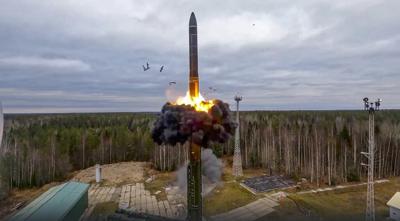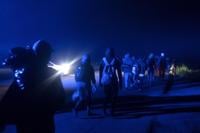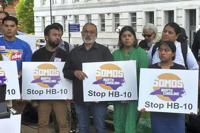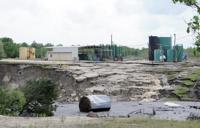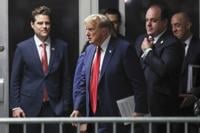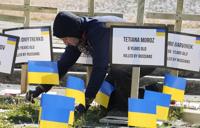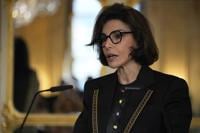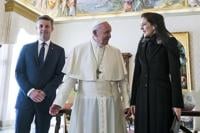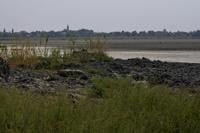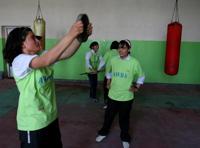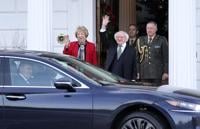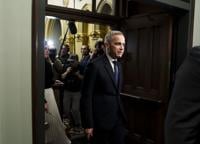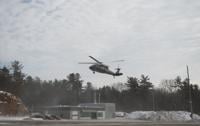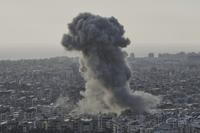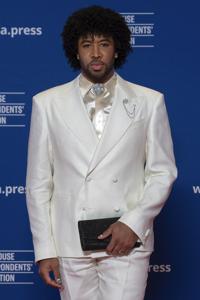MOSCOW (AP) — The lower house of Russia's parliament on Wednesday gave its final approval to a bill revoking the ratification of a global nuclear test ban treaty, a move Moscow described as putting it on par with the United States.
The State Duma lawmakers voted unanimously to revoke the ratification of the Comprehensive Nuclear Test Ban Treaty in the third and final reading on Wednesday. The bill will now go to the upper house, the Federation Council, which will consider it next week. Federation Council lawmakers have already said they will support the bill.
The legislation was introduced to parliament following a statement from earlier this month that Moscow could revoke its 2000 decision to ratify the treaty to “mirror” the stand taken by the United States, which has signed but not ratified the nuclear test ban.
The treaty, adopted in 1996, bans all nuclear explosions anywhere in the world, although it has never fully entered into force. In addition to the U.S., it is yet to be ratified by China, India, Pakistan, North Korea, Israel, Iran and Egypt.
There are widespread concerns that Russia could resume nuclear tests to try to discourage the West from offering military support to Ukraine. Many Russian hawks have spoken in favor of a resumption.
Putin has said that while some experts have talked about the need to conduct nuclear tests, he hasn’t yet formed an opinion on the issue.
Deputy Foreign Minister Sergei Ryabkov said last week that Moscow will continue to respect the ban and will only resume nuclear tests if Washington does so first.
Even after de-ratifying the treaty, Russia will remain a signatory, which “means that they still agree to abide by the terms of the treaty," so “it's not clear that we’re looking at the immediate restart of nuclear testing,” said Patricia Lewis, research director for international security at Chatham House, a London-based think tank.
But the Russians are indeed challenging “the whole legislation that they helped set up on in terms of arms control, in terms of nonproliferation, in terms of stability, strategic stability, regional stability,” Lewis said.
“From the bigger picture, what we’re seeing is an unraveling of the constraints and the checks and balances that we have in the system for controlling these horrific, inhumane weapons,” the analyst said.

